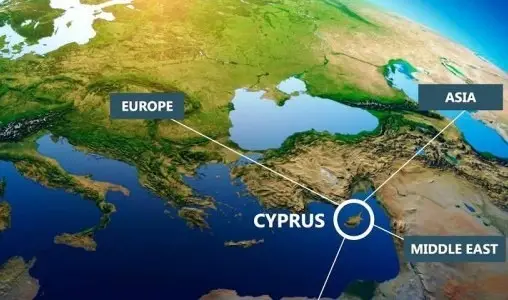Northern Cyprus, located on the northern third of the island of Cyprus, occupies a unique geographic position at the easternmost point of the Mediterranean. The island lies at the crossroads of Europe, Asia, and Africa, placing it in a vital strategic location. Historically, Cyprus has been coveted by empires and nations alike due to its proximity to the Middle East and its access to crucial trade routes.
The political division of Cyprus in 1974, following the Turkish invasion prompted by a Greek junta-backed coup, has shaped the modern political landscape of Northern Cyprus. The Turkish Republic of Northern Cyprus (TRNC) was declared in 1983, although it is only recognized by Turkey. Despite the division, Northern Cyprus remains important as a political, economic, and military stronghold for Turkey in the region.
Cyprus’ proximity to the volatile Middle East, including conflict zones such as Syria, Iraq, and Israel, further enhances its importance. Moreover, it lies along key maritime trade routes between Europe and Asia, making it a significant player in the movement of goods, energy supplies, and military vessels. The discovery of natural gas and oil reserves off Cyprus’ southern coast has only amplified the region’s strategic value, as it is in close proximity to these resources and offers a potential route for exporting energy from the Eastern Mediterranean to Europe.
In addition to its geographic advantages, Northern Cyprus serves as an essential outpost for Turkey. The Turkish military maintains a strong presence in the region, and the presence of Turkish Cypriots gives Turkey a degree of influence over the island’s future. The role of Northern Cyprus as a strategic crossroads in the Eastern Mediterranean, amid growing geopolitical competition, remains central to Turkey’s foreign policy and regional ambitions.

